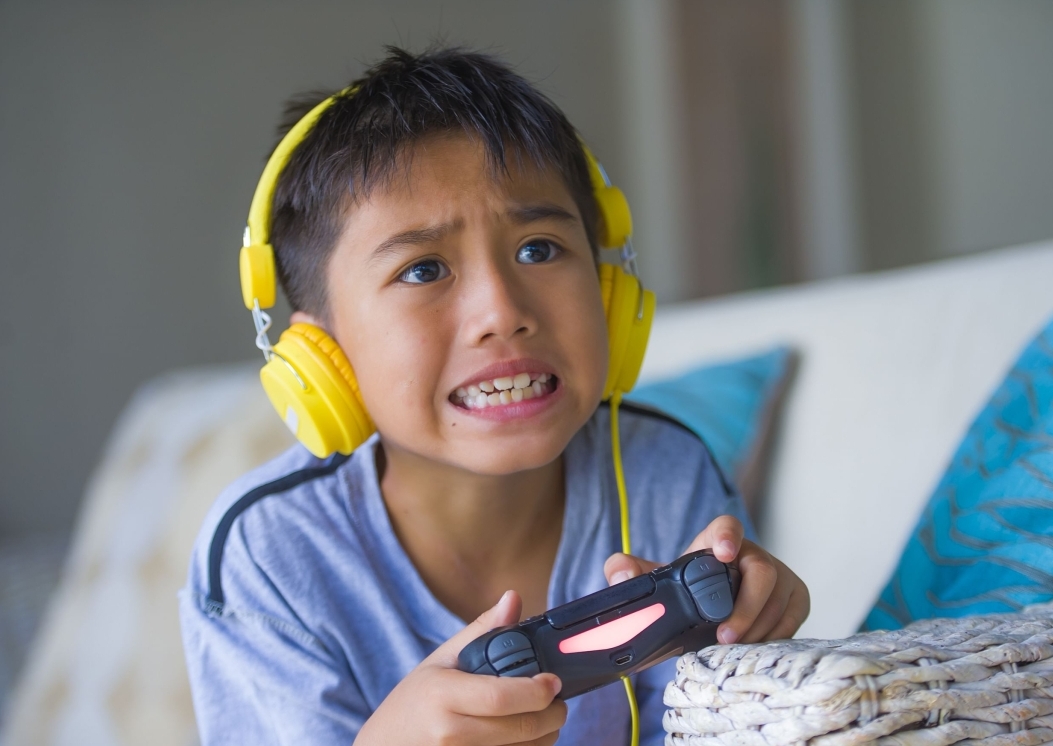More than ever, kids today adore video games. The way your child interacts with their friends and their generation is heavily influenced by gaming. Your kid may chat about gaming with their friends, debate strategies online, and, of course, play for what seems like endless hours—whether it’s a brand-new game or an old favorite. But eventually, your child’s gaming habits become unmanageable. It might be time to seek professional assistance for Game Addiction in Children.
In our experience, the rise of technology and video games has become an integral part of children’s lives. While gaming can be a source of entertainment and even education, excessive gameplay can lead to game addiction in children.
In our findings, game addiction in children is a growing concern. It can have adverse effects on a child’s physical health, academic performance, and social development. Therefore, it is imperative for parents and caregivers to address this issue effectively and Prevent video game addiction.
Recognizing Signs of Game Addiction
To prevent video game addiction, it’s essential to recognize the signs early on. Based on our research, here are some common indicators of game addiction in children. One of the consequences of Child gaming habits is a decline in academic performance. As children become engrossed in gaming, they tend to neglect their studies, leading to failing grades and an overall lack of interest in school.
In some cases, physical symptoms may manifest, such as sleep disturbances, headaches, and eyestrain. These are telltale signs of excessive screen time and the need for intervention.
Understanding the Causes of Game Addiction in Children
Prevent video game addiction by understanding the underlying causes. Our findings indicate that game addiction can be attributed to several factors:
According to our observations, kids may use video games as an escape from stressors in real life. The virtual world is all the more attractive since it offers an escape from concerns and rapid satisfaction.
Social pressure is a major contributing factor to game addiction. Kids could feel pressured to engage in specific games in order to blend in with other kids their age. The competitive spirit and sense of connection found in gaming communities can be highly addictive.
Setting Healthy Gaming Limits
To prevent video game addiction, it’s crucial to establish healthy gaming limits. In our findings, the following strategies are effective:
Limiting gaming time to age-appropriate amounts aids kids in leading balanced lives. It guarantees that playing video games won’t get in the way of other important responsibilities like housework, social connections, and homework.
Children who participate in decision-making are more accountable for their behaviors. Encourage them to place acceptable restrictions around their own gaming limits.
Open Communication with Children
Effective communication is key in managing Game Addiction in Children. In our research, we have found that open and honest conversations can make a significant difference. Here are some strategies:
Create an environment where children feel safe discussing their gaming habits without fear of judgment. Talk to your children about the potential consequences of excessive gaming, such as its impact on their health, education, and social life.
It’s important to encourage children to be honest about their Healthy gaming habits. By knowing how much they play, you can better manage their screen time. Our Tips for Parents on Preventing Game Addiction in Children provides valuable solutions to help you address and prevent game addiction in your children.
Monitoring and Parental Controls
As parents, it’s essential to take advantage of available tools to manage game addiction. Parental control apps are available on the majority of gaming consoles and platforms, enabling you to monitor gaming activities, impose content restrictions, and set playtime limits.
Make sure the games your kids are playing are age-appropriate by periodically checking them. Recognize the material and how it might affect your child. Encourage your kids to engage in educational activities that will aid in their growth in addition to providing entertainment.
In summary, addressing game addiction in Children necessitates a multifaceted strategy. Parents and other caregivers can successfully prevent and treat gaming addiction in children by identifying the symptoms, comprehending the causes, establishing appropriate boundaries, keeping lines of communication open, encouraging substitute activities, putting parental controls in place, and creating a nurturing atmosphere. It’s critical to keep a balanced perspective when playing games and to modify tactics as circumstances change. Based on our research, this strategy can assist kids in reaping the rewards of gaming without letting it negatively impact their general health.

